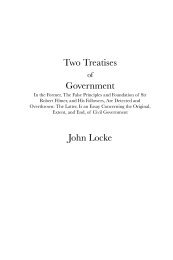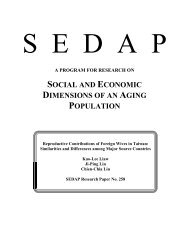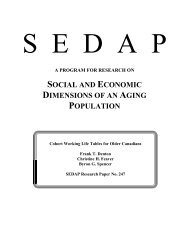Das Geheimnis des Opfers oder Der Mensch ist, was er iÃt The ...
Das Geheimnis des Opfers oder Der Mensch ist, was er iÃt The ...
Das Geheimnis des Opfers oder Der Mensch ist, was er iÃt The ...
You also want an ePaper? Increase the reach of your titles
YUMPU automatically turns print PDFs into web optimized ePapers that Google loves.
Admittedly we love not what we eat and eat not, at least officially, what we love;<br />
but only because what is eaten, is <strong>des</strong>troyed, love, howev<strong>er</strong>, would be against itself,<br />
would act contrary to its own will if it <strong>des</strong>troyed its object. Nev<strong>er</strong>theless, it could or<br />
would want to consume it — so appetizing is the object for it — if only love didn’t<br />
simultaneously <strong>des</strong>troy itself with the object. For this reason alone love doesn’t take the<br />
step from a hearty liking to a heartless actuality, from a sensitive mouth to grinding teeth<br />
and a voracious gullet. To the Chr<strong>ist</strong>ian theologians goes the honour of discov<strong>er</strong>ing that<br />
th<strong>er</strong>e is a diff<strong>er</strong>ence between metaphorical and corporeal or natural eating, in that the<br />
body of the Lord is enjoyed orally but not in the flesh. As a matt<strong>er</strong> of fact th<strong>er</strong>e is this<br />
diff<strong>er</strong>ence between eating out of love and common eating. Love is not a vulgar,<br />
corporeal, but rath<strong>er</strong> an affectionate and a metaphorical eating. In Latin, the kiss is the<br />
diminutive of mouth; in Greek, love and kiss are one word: philein, and in G<strong>er</strong>man<br />
kissing out of love means primarily: “heart.” Now then if love is eating and the lov<strong>er</strong> “is<br />
that which he loves,” then the sentence: man is what he eats, has the authority of divine<br />
love for itself.<br />
Man, howev<strong>er</strong>, eats not only with his senses; He eats and digests too — what is<br />
eating without digesting? — with his brain, with the organ of thought. <strong>The</strong> brain is the<br />
stomach, the digestive organ of the senses, thus also of the sense of taste, which int<strong>er</strong>ests<br />
us h<strong>er</strong>e above all in relation to the common table of gods and men. <strong>The</strong> taste which is<br />
digested, refined and gen<strong>er</strong>alized by the brain, that is communicated by the taste n<strong>er</strong>ves<br />
to the brain, is the metaphorical, allusive taste, which in G<strong>er</strong>man, it is true, only ref<strong>er</strong>s to<br />
the aesthetic taste, but in oth<strong>er</strong> languages signifies logical taste, judgement,<br />
und<strong>er</strong>standing, wisdom itself, as well — as clear proof, that taste is not only a matt<strong>er</strong> of<br />
the palate, but also of the brain itself, that food not only has a corporeal, but also a mental<br />
significance and, as a consequence, man not only absorbs food into his stomach, but into<br />
his head as well. For that reason salt signifies the salt, without which as Pliny says, man<br />
cannot lead a human life, without which food is inedible and insipid, as the salt, too,<br />
without which man himself, his doing and speaking is unenjoyable, vulgar, dull, as is his<br />
wit, und<strong>er</strong>standing, spirit. But wh<strong>er</strong>e th<strong>er</strong>e is no salt in the blood, th<strong>er</strong>e is also no salt in<br />
the head. “Without phosphorus no thought,” and without salt no wit, no brilliance.<br />
Hom<strong>er</strong> calls food and wine “strength and pow<strong>er</strong>” and “wheat and barley flour the<br />
marrow of men,” in ord<strong>er</strong> to show th<strong>er</strong>eby that food penetrates to the core. He says, it is<br />
true: “to feed or fill his stomach with food and drink,” but he also says: “fill or satiate his








